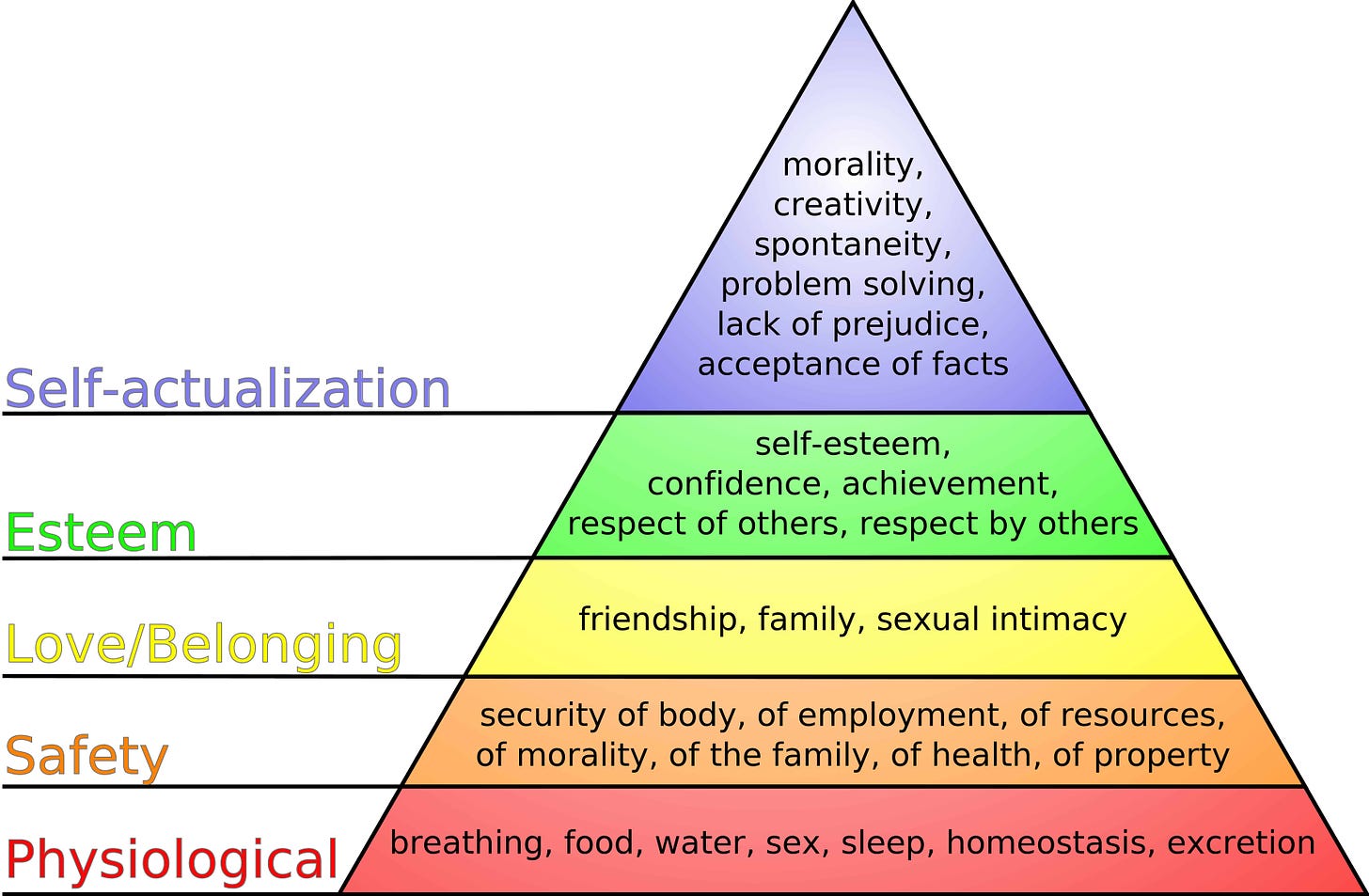I often make fun of the Libertarian party, and they often deserve it. Combine the group’s horrible political talent with mainstream media disdain, and it’s not a surprise that I’ve attempted to find ways to explain my politics without using the “libertarian” label. “Constitutionalist” worked for a while, “Minarchist”came and went, but the label I like the best is “Voluntaryist.”
I’ve previously written about how freedom enriches us on a planet in which the default state is abject poverty while slowly starving to death. Voluntary transactions allow us to build as a society as we optimize our resources. Here’s the relevant passage from the linked article I’ll expand on today:
In a free market society, access to resources is price-based. This means that the part-time carpenter (who values raw timber higher than a baker) can head down to the lumber-equivalent version of Randalls and purchase whatever they like. Eventually, the raw wood is turned into a chair (or many chairs) - improving the lives of everybody involved. Maybe this part-time gig is so successful that it turns into a full-time job, perhaps one that requires additional employees — once again improving the lives of everybody involved.
Of course, a single part-time carpenter doesn’t account for the vast difference in standard of living between the two styles of governance. But let’s zoom out just a little bit further. The woman who loves to bake values cooking ingredients higher than the carpenter does and makes the most of those ingredients, exactly how the man who loves to garden values gardening tools higher than others. Every time our resources are ‘optimized’ in this way, society gets just a little bit richer. Compound these small differences over millions of people and hundreds of years, and eventually you’re faced with Randalls supermarket versus the bare and depressing Russian-run version.
As an added bonus, the citizens of a free society are also HAPPIER than communists, specifically because of the freedom to pursue their hopes and dreams. No central planning required. Just free people making their own decisions about how to spend their time and resources.
Libertarians (and voluntaryists!) are often accused of focusing too much on the economy and how the free market is the most efficient way to solve our problems. But freedom MAKES PEOPLE HAPPY, for obvious reasons! Nobody wants to be told what…………errrrrr, most of us don’t want to be………..well, some of us don’t like being told what to do, where to work, where to live, or even who to marry. In addition to free people being happier, “the economy” is shorthand for numerous economic-related issues including job availability, standard of living, quality of public services (roads and schools), etc etc. Just as a bad economy negatively affects our health, a good economy builds it up (perhaps in the form of more doctors/therapists, or expanded access to such).
I’m sure many of you are familiar with Maslow's hierarchy of needs:
As humans, we fill our basic desires first. Once those are handled, we “move up” the pyramid with more complex desires requiring more people.
Societies operate in much the same way. At the bottom of society’s pyramid is basic safety — people aren’t interested in living where there’s no law and order. This means a fair law enforcement via a functioning court system.
On the next step we have utilities. Roads that don’t wreck your car. Electricity that doesn’t randomly go out. Just about everybody agrees that government should be focusing on these bottom two steps, and would have no problems funding a government that did so.
But sometimes societies get so rich that government starts building extra steps. Wouldn’t it be nice if the government kept up some parks? Maybe built a new art center? And maybe it would. But they don’t stop there, do they?
Soon they’re running an intense propaganda campaign to inject everybody in the country with emergency-use-only medication. Or spending millions on tackling the homeless problem while only making it worse. Or talking about banning your electric stoves (while saying they’re not going to ban your electric stoves) in order to make the weather worse. **Edit — this should obviously be banning gas stoves but I am bad at this. Leaving it up so you can all point and laugh.**
But people who are struggling to feed their families aren’t really worried about the comfort of hypothetical future humans — that only happens when people are rich enough to sit around “solving” future problems instead of solving actual current ones.
As we build up a society through voluntary transactions, it’s imperative that we keep government focused on the first couple steps of society’s pyramid. In the next article, I’ll outline what happens when the “leaders” overstep that boundary. Hint: You’re living it.
Tomorrow is Opening Day and as such there won’t be an article, so use this as the Opening Day Open Thread! You guys know I’m a Royals fan, and we’re probably going to be somewhere between terrible and bad. But until we actually ARE somewhere between terrible and bad, I’m optimistic!
That’s the magic of a blank slate and an entire summer ahead!

















This could use a couple more hours to hammer it out, but that's time I don't have. :( If I sucked bad at explaining something hopefully I'll be able to shore that up in the comments.
Hello from a fellow lower-case "l" libertarian. I've tried, without much success, to explain what libertarianism is and how libertarians think. I like your term "voluntaryist," but it loses something important when we disconnect it from liberty.
I spent a lot of time in my head the past few days trying to put together an article similar to this, including Maslow's Hierarchy of Needs. I'm going to start writing what I had scratched out in my head.
Libertarians are focused on the supremacy of the individual. That is our strength and our weakness. Put ten libertarians in a room and you get twelve to twenty opinions on everything. We are the antithesis of authoritarians. We are social liberals and fiscal conservatives simply because social liberalism is a luxury one can only afford if one is concurrently a fiscal conservative. Conservatives hate us because we're social liberals; liberals hate us because we're fiscal conservatives. Many people try to simplify the world and say we're really just well-spoken Republicans. Not so at all.
We want government out of our bedrooms, our businesses and our purses. Think of us as small-government liberals. Most of our founding fathers were libertarians. That's why they wrote to Constitution to protect the people from their government. Must stop now, will pick this up tomorrow.